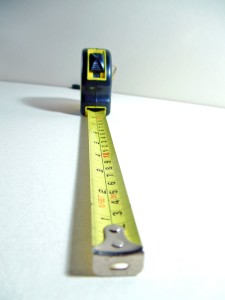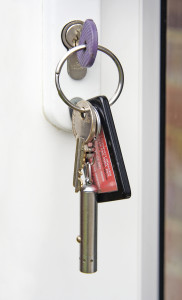The process of selling a home can be exiting, but it can also be overwhelming. Knowing what to expect when selling a home can help make the process less stressful and minimize surprises. If you are following along in our series, you have likely found the best real estate agent, taken steps to prepare listing your home for sale, possibly staged your home to sell, and hopefully have had an opportunity to negotiate an offer. If all has gone well, you are now in escrow. Let’s talk about “What to Expect When Selling a Home: In Escrow”.
What does it mean to be “in escrow”? The escrow instructions are often contained within the purchase agreement. Be sure these are complete and agreed upon. The signed agreement puts the sale “under contract” and an escrow account is opened. The escrow company acts as a neutral third party that will manage the paperwork and funds required to complete the transaction.
 While the specific escrow process will vary by transaction and geographical area, here is what a seller can generally expect during escrow. First, if the buyer is getting a loan to purchase the home, their lender will likely require an appraisal. As the seller, it is imperative that you disclose in writing any known problems, defects, or needed repairs (even if the home is sold “as is”). While not necessarily required (but recommended), the buyer may wish to obtain a home inspection. Lenders usually also require a pest inspection. Sometimes an environmental inspection may be necessary (if suspected toxins are present like mold or asbestos). Depending on the property, other inspections may also be required. As the seller, it is important to make your home available for these inspections.
While the specific escrow process will vary by transaction and geographical area, here is what a seller can generally expect during escrow. First, if the buyer is getting a loan to purchase the home, their lender will likely require an appraisal. As the seller, it is imperative that you disclose in writing any known problems, defects, or needed repairs (even if the home is sold “as is”). While not necessarily required (but recommended), the buyer may wish to obtain a home inspection. Lenders usually also require a pest inspection. Sometimes an environmental inspection may be necessary (if suspected toxins are present like mold or asbestos). Depending on the property, other inspections may also be required. As the seller, it is important to make your home available for these inspections.
In addition, the seller is expected to provide the full name and social security number of each seller, a copy of the original title insurance policy or grant deed, information on any debt against the property (such as a mortgage, deeds of trust, or home equity line of credit, including names and account numbers), and a copy of a current property tax statement. Your escrow officer or agent will let you know what else may be required. It is also important to be prepared for the final walk through in the final weeks. Once the buyer’s loan is funded and all terms of the sales contract have been satisfied, escrow will close and distribute funds and paperwork. Bring a driver’s license or photo ID, keys to the property, and any applicable warranties to the close of escrow.
 What else should I do? As your real estate agent and escrow company walk you through this process, there are other important things to do for a successful transaction. This includes carefully reviewing all contracts and reports (including the purchase agreement, the title report, and all inspection reports), gathering and providing all HOA documents and contact information, tracking costs and estimates, and making all mutually agreed-upon repairs. Also, it is important that you stay available and reachable during escrow to address any last minute issues that may arise and potentially cause delays in the escrow process. If you are in the midst of a move, be sure your forwarding information available and keep your same cell phone number if possible.
What else should I do? As your real estate agent and escrow company walk you through this process, there are other important things to do for a successful transaction. This includes carefully reviewing all contracts and reports (including the purchase agreement, the title report, and all inspection reports), gathering and providing all HOA documents and contact information, tracking costs and estimates, and making all mutually agreed-upon repairs. Also, it is important that you stay available and reachable during escrow to address any last minute issues that may arise and potentially cause delays in the escrow process. If you are in the midst of a move, be sure your forwarding information available and keep your same cell phone number if possible.
If things have gone smoothly (and we hope they have), you will have successfully closed the sale of your house- congratulations! Be sure to check back for our next series of articles on “What to Expect When Buying a Home.” We hope you have found this information helpful and would love the opportunity to help you in person. Call us anytime and let us know how we can help you!
Investing in YOUR Future,
R.B. Haley Fine Homes and Estates
Did we miss anything? Feel free add comments below with some of your great ideas and/or feedback. Thanks for your input and please remember to share!
R.B. Haley, Inc. 12396 World Trade Drive, Suite 306, San Diego, CA 92128
http://www.RBHaley.com 858.592.4895 CA Lic#01843189/01219416
